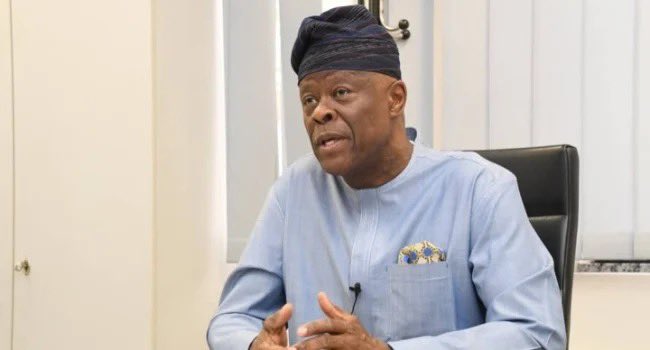


FG to strengthen food security, boost productivity
By Matthew Denis
In a step to enhance food security and agricultural productivity in the country, the Federal Government has stepped up plans to foster global partnership with World Food Programme (WFP) in order to boost Nigeria’s Agricultural Sector for improved food security.
The Honourable Minister of Finance and Coordinating Minister of the Economy, Mr. Wale Edun disclosed this yesterday in Abuja when he received a high-level delegation from the World Food Programme (WFP) led by the newly appointed Regional Director, Mr. Chris Nikoi.
He stated that the visit was part of ongoing efforts to strengthen food security and boost agricultural productivity in Nigeria in line with the Renewed Hope Agenda of the President Bola Ahmed Tinubu-led Administration.
The meeting, attended by the Honourable Minister of Agriculture & Food Security, Senator Abubakar Kyari, explored opportunities for partnership and collaborative initiatives to drive Nigeria’s agricultural growth.
The engagement further provided an opportunity for the WFP delegation to highlight the numerous opportunities for partnership and also expressed their readiness to support Nigeria’s Agricultural Sector through collaborative ventures. Key among these initiatives are service delivery programs focused on the provision of fertilisers and seeds, which are essential for enhancing farming output and ensuring food security.
In his remarks, HM Edun commended the WFP for their proactive engagement and underscored the significance of their interventions in advancing President Bola Ahmed Tinubu’s Reform Agenda, particularly in the areas of enhanced food availability and agricultural production.
He assured the delegation that the Federal Ministry of Finance would take the necessary steps to facilitate the implementation of the proposed initiatives.
With the partnership between the Ministry and World Food Programme in place, the country is poised to witness significant strides in food security and agricultural productivity. This will undoubtedly contribute to Nigeria’s economic growth and development.
Thus, Nigeria can expect enhanced service delivery, improved agricultural output, and a brighter future for its citizens.



